Fifa scandal exposes flaws in Brazil's football governance
- Published
Fans may love the shirt but they despise the CBF, reports the BBC's Wyre Davis
Brazil may be the most successful country in the history of the World Cup but it has found itself horribly exposed at the centre of the Fifa corruption scandal.
As Brazil's men's team prepared to head off to the Copa America in Chile and the women's team were already winning its first match at their World Cup in Canada, the games administrators at home were doing an unconvincing impression of "business as usual".
But those calling for reform say that unless things change the future looks bleak for football in Brazil.
The lifestyles of senior officials in the beautiful game have always been at odds with the humble roots of most players but in Brazil that gulf is perhaps at its widest and most crude.
Into the sunset
Little has been seen or heard of Ricardo Teixeira since he was forced out of his job as president of the CBF (Brazilian Football Confederation) over allegations of bribery and other financial irregularities in 2012.
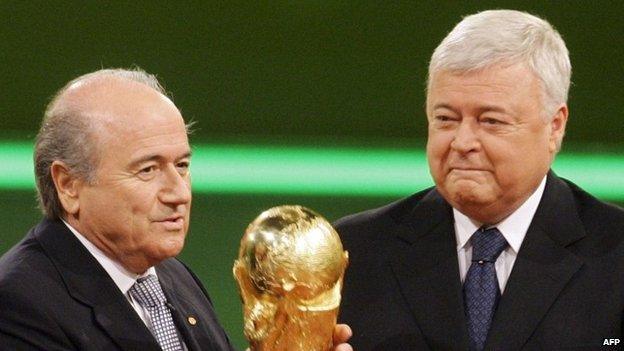
Ricardo Teixeira (right), here with Fifa President Sepp Blatter, is in the FBI's sights
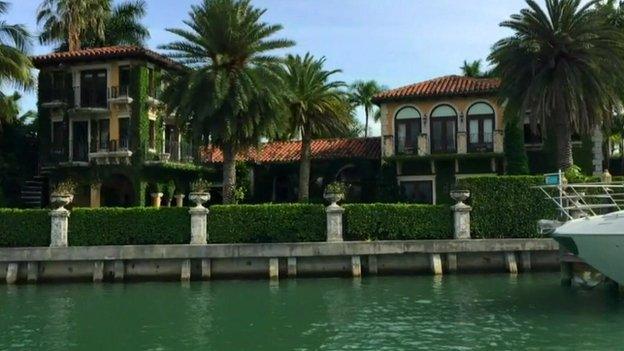
Ricardo Teixeira's luxury villa in Florida is up for sale
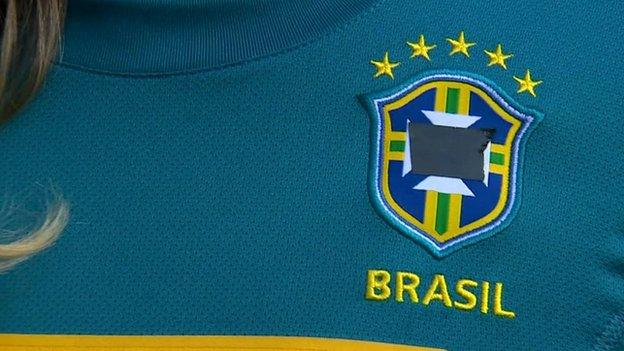
Fans may love the Brazil shirt - but they despise the CBF
Corruption is not a new phenomenon in Brazilian football. But with half-hearted efforts by the authorities to investigate powerful men, most of those accused, like Teixeira, sail off into the sunset - quite literally.
But for some time Teixeira's waterside Florida mansion has been on the market - a virtual palace valued at anything between $10m and $20m.
While the short arm of Brazilian law may have not been able to catch up with him, there is a new player in the murky world of sports crime with much bigger and more menacing tentacles - the FBI.
Teixeira was implicated in the now infamous FBI deposition, acted upon in Zurich at the end of May.
Brazil's federal police have also now finally charged Teixeira, the 67-year-old son-in-law of Brazil's original football "Don", Joao Havelange, and he's been accused of using the Brazilian national team as his personal cash-cow.
Marketable assets
As the Brazil squad trained earlier this week at its permanent base in the cool hills above Rio, the BBC was investigating reports that a 2010 friendly match between Brazil and Argentina is being probed by Swiss police for alleged multi-million pound kickback payments to South American football officials.
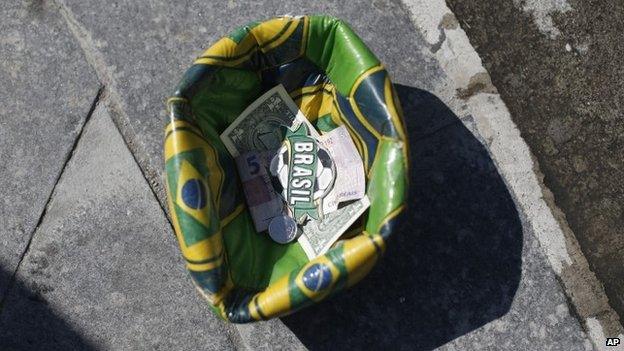
Critics argue that Brazilian soccer is deeply sick and its entire governance model needs to be changed
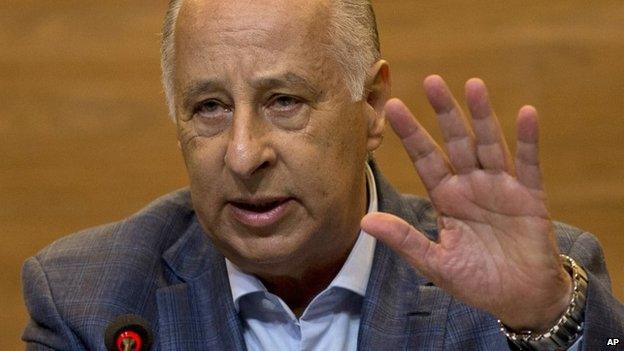
Brazilian Soccer Confederation Marco Polo Del Nero has so far rejected calls to resign
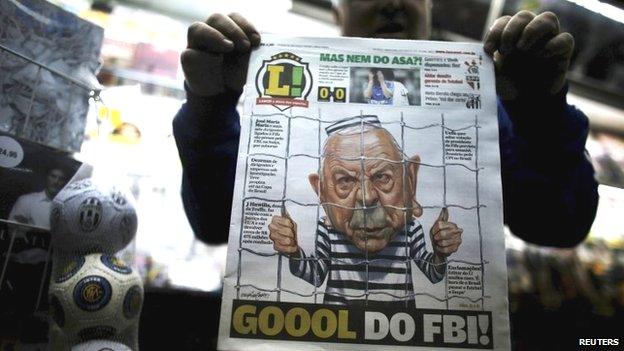
Cartoons in Brazilian newspapers have appeared showing former CBF president Jose Maria Marin under arrest in Switzerland
The two teams are valuable, marketable assets and this particular game was played in the most potentially profitable arena of all, Qatar.
It was just weeks before the Middle East state won the controversial vote to host the 2022 World Cup.
The man in charge of the CBF at the time was Ricardo Teixeira and his Argentine counterpart was Julio Grondono. Both men subsequently voted for Qatar and while Grondona has since died, Swiss officials would dearly love to talk to Ricardo Teixeira about financial arrangements for the game.
The match was organised by a Swiss-based sports management company, Kentaro, which had a contract to arrange friendly games for the Brazilian national side.
A senior executive at the company told the BBC that it was co-operating fully with investigators and had made no unauthorised payments itself.
'Shameful'
Numerous lucrative deals stuck by Brazil's national football federation, from clothing to television to marketing rights, are now under scrutiny.
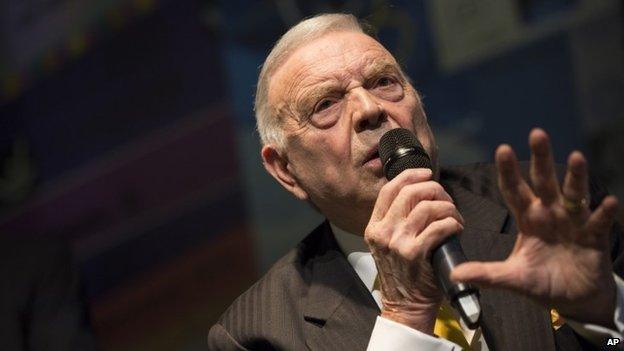
Mr Marin is now facing extradition calls from the US
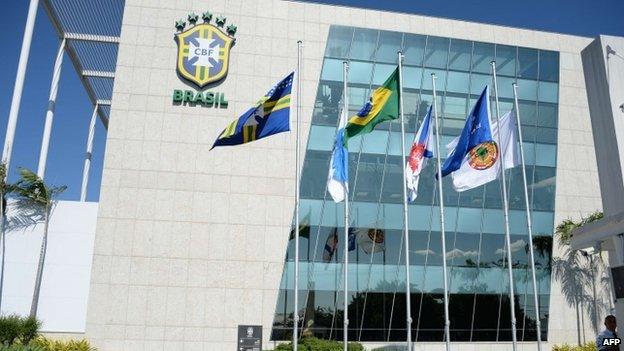
Change is anathema within the protective confines of the CBF
At a recent friendly match between Brazil and Mexico in Sao Paulo there were thousands of fans wearing the famous green and gold colours of the "Selecao". But while they love the shirt, they generally despise the CBF.
"What 's been going on in World football with the help of the CBF is shameful," said one woman who had even covered the letters "CBF" on her shirt with black tape.
"I've played football since I was little and I'm passionate about it but they're destroying the game," she continued,
A man also dressed in the national colours echoed those sentiments, saying: "It's a shame for Brazil. We love our team but we know that corruption and soccer are almost the same, they go hand in hand."
Under arrest
It was not lost on those fans that officials at the CBF have for decades acted with impunity despite allegations and evidence of corruption. Yet it has taken a criminal investigation in the US to force the issue here.
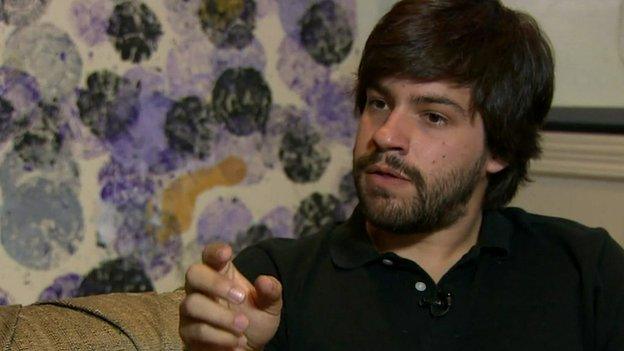
Ricardo Borges from Bom Senso (Common Sense) FC says a root and branch reform of the CBF is the only answer
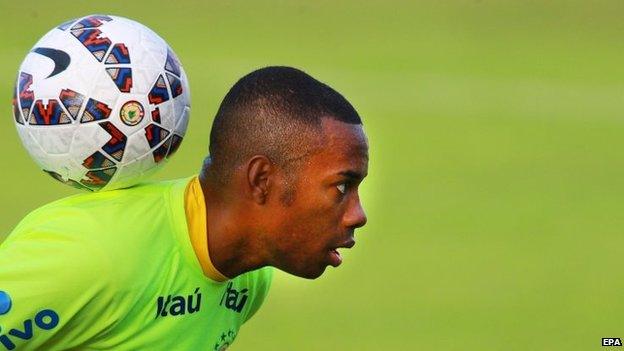
South America may be the spiritual home of football but it is a house badly in need of rebuilding
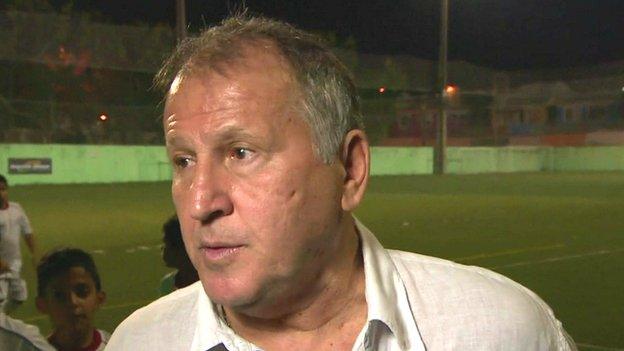
Zico has announced his intention to replace Sepp Blatter as president of Fifa
Along with Ricardo Teixiera, two other serving or former CBF presidents are being investigated as part of the FBI probe.
Former President Jose Maria Marin is under arrest in Switzerland, pending extradition to the US and current boss, Marco Polo del Nero, has so far rejected calls to resign.
For now, within the protective confines of the CBF, del Nero can seek comfort in a system and a body where change is anathema.
While the Brazilian national team continues to draw crowds and profits on the international stage, despite the ignominious 7-1 defeat to Germany in last year's World Cup, it is a different story at home.
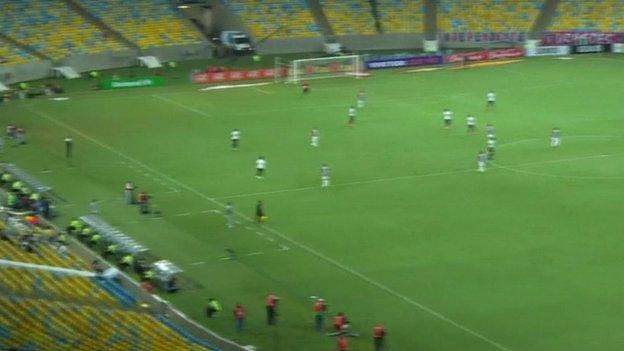
Brazilian soccer is in crisis - crowds are small, clubs are broke and the best players are overseas
CBF bosses are accused of presiding over a game in crisis. Crowds for domestic matches are often small, clubs are financially broke and the best players are based overseas.
Campaigners like Ricardo Borges from Bom Senso (Common Sense) FC say a root and branch reform of the CBF is the only answer.
"Brazilian soccer is deeply sick. What we need to change here is the entire governance model," says Mr Borges, whose group is increasingly influential in political and sporting circles.
"We need to create a new structure in which those people now in power, Marco Polo del Nero, Teixeira and Marin, cannot stand again."
Despite the resistance to change from the powers that be in the CBF, there is momentum for reform elsewhere.
In Brazil's Congress, former striker and World Cup winner, Romario, is pushing through what could be a wide-ranging inquiry into the affairs of the CBF.
And this week in Rio, I met former Brazilian legend, Zico, just after he had announced his intention to replace Sepp Blatter as president of Fifa.
Despite his superstar status, without significant experience in football administration and knowing that Fifa is still an "insiders" club, Zico admits his chances are slim but told me he could not "just stand by and watch the game being ruined".
At his football academy in Rio he said: "The Brazilian national team belongs to the people, not the Federation. This system built on trading favours has to end."
As the world of football continues to digest what has been a tumultuous fortnight, Brazil is among the favourites to win the regional Copa America, now under way in Chile.
The tournament is yet another event allegedly targeted by corrupt officials, according to FBI investigators, who have promised more revelations in coming weeks.
South America may be the spiritual home of football but it is a house badly in need of rebuilding.